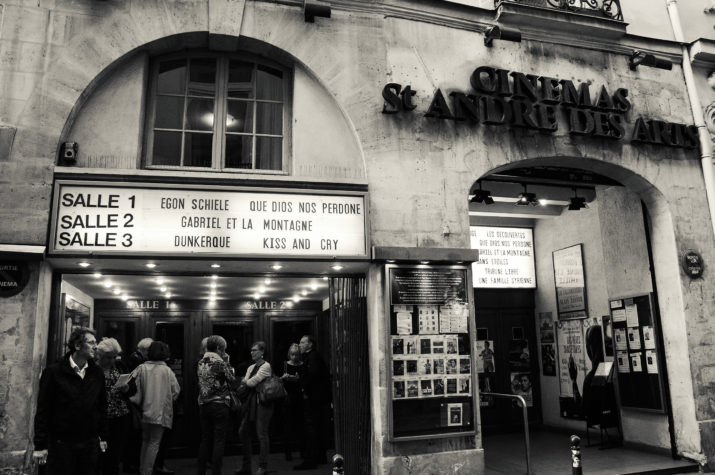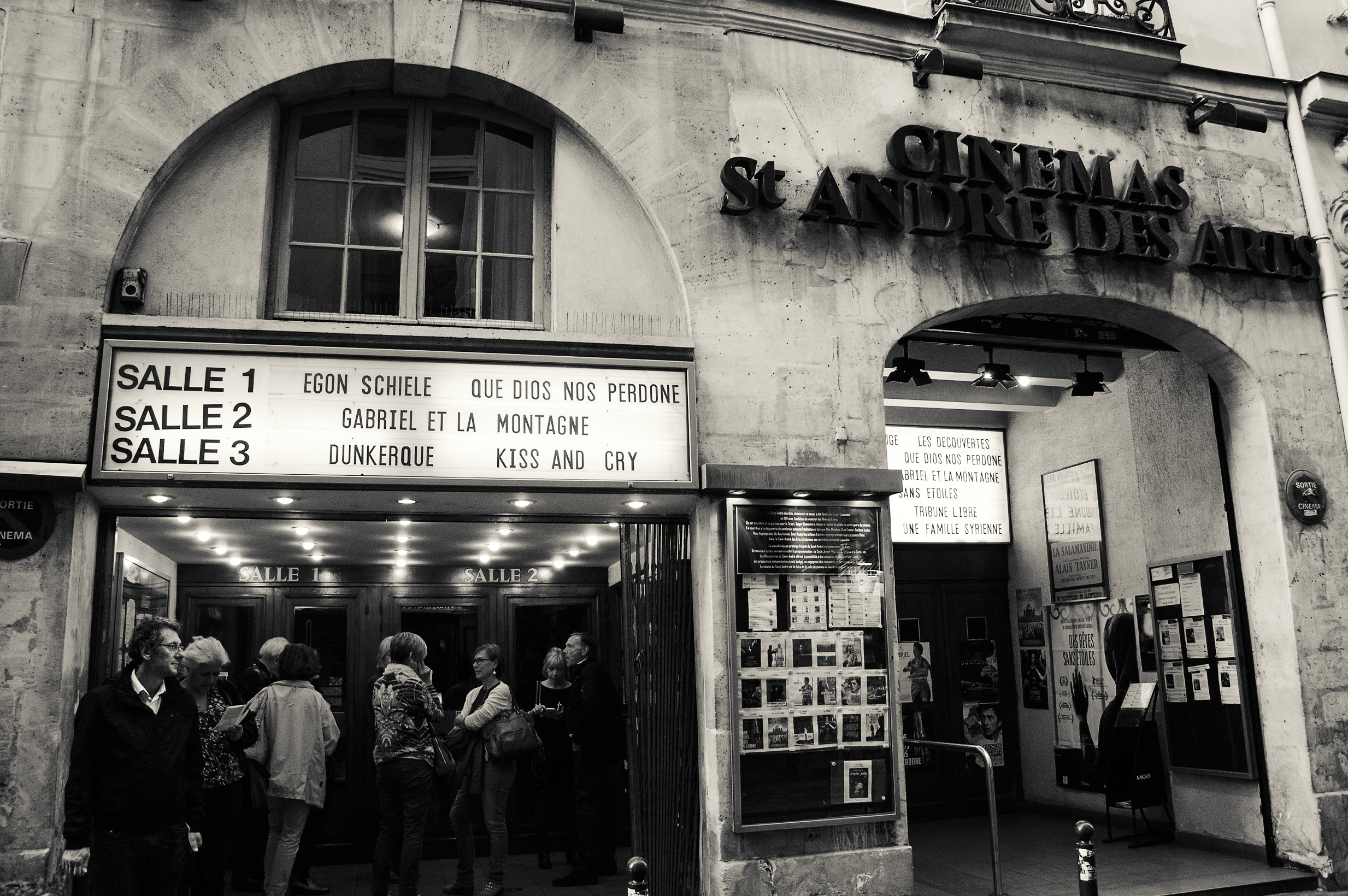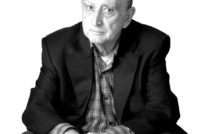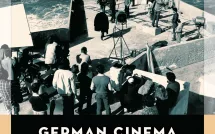

This is part of our special feature on European Culture and the Moving Image.
Course description
This course explores some of the most important developments in European cinema since 1960. In the first part of the course we will consider some examples of post-1960 European art cinema; in the second part we will turn our attention to questions of personal and national identity, citizenship, racism, class relations, multiculturalism, postcolonialism, migration and globalization within the context of the two most significant developments in European cinema over the last several decades: the trend to national and cultural fragmentation on the one hand, and to pan-Europeanization on the other hand. Bringing together specific case studies and a multi-disciplinary theoretical approach, we will ask how the forces of globalization have contributed to the creation of new modes of transnational culture beyond the nation and its ethnic, sexual and religious exclusions. Lectures will be supplemented by film screenings. Tutorial meetings will be the main locus for discussion of required and recommended reading and assignments in the course. The required readings are central to the course. The lectures and tutorials will serve to enrich, clarify, and illustrate crucial issues from the assigned readings.
Course learning objectives
(1) The purpose of this course is to help students critically evaluate the major developments in European cinema from 1960 to the present.
(2) The specific objectives of the course are that students will be able to:
- acquire a firm grasp of the history of European cinema since 1960
- read critically dense theoretical texts and draw meaningful connections between them
- understand what distinguishes European cinema from other cinemas
Course text / readings
All readings for this course are on reserve at Scott Library. Additional readings may be assigned or recommended during the course.
Evaluation
Attendance and class participation: 10%
Reading quizzes (best 5 of 6): 20%
Midterm exam: 20%
Oral presentations: 20%
Final essay (12-15 pages): 30%
Oral presentations
Working with a partner you will do an oral presentation (15-20min) on a European film not screened in class but related to the readings and screening for a particular week.
To prepare for the presentation:
1) watch the film, preferably more than once, and take notes;
2) find sources—articles, reviews, interviews, book chapters, books etc.—that examine this particular film and use them to situate it in its historical, production, and cultural
context;
3) link your analysis of the film to the week’s readings;
4) prepare 3 questions for class discussion. You should use a clip or two from the film to illustrate the points you are making; however, the clip(s) should be no longer than 3-4 minutes.
Schedule
WEEK ONE: Italian cinema after neo-realism
Screening: L’avventura, Michelangelo Antonioni (1960), 143min.
Readings:
- European Renaissance West: The Second Italian Film Renaissance‖, in David A.
Cook, A History of Narrative Film, 4th ed. New York: W. W. Norton & Company, 2004),
531-555.
- The Object Antonioni‖, in Angelo Restivo, The Cinema of Economic Miracles:
Visuality and Modernization in the Italian Art Film (Durham, NC: Duke UP, 2002), 95-
124.
WEEK TWO: The French new wave
Screening: Breathless, Jean-Luc Godard (1960), 90min.
Readings:
- The French New Wave and Its Native Context‖ in Cook, 431-481.
- Peter Wollen, Godard and Counter-Cinema: Vent d’Est, in Catherine Fowler, ed. The
European Cinema Reader (London: Routledge, 2002), 74-83
WEEK THREE: New German cinema
Screening: Ali: Fear Eats the Soul, R. W. Fassbinder (1974), 93min.
Readings:
- Germany: Das Neue Kino‖ in Cook, 658-675
- Julia Knight, Achievements: Counter-myths of German Identity, in New German
Cinema: Images of a Generation (London: Wallflower Press, 2004), 45-92.
WEEK FOUR: Soviet cinema of Glasnost
Screening: Malenkaya Vera / Little Vera (Vasilii Pichul, 1988), 110min.
Readings:
- The Former Soviet Union, 1945-present, in Cook, 689-724.
- Anna Lawton, Toward a New Openness in Soviet Cinema, 1976-1987, in Daniel
Goulding, ed. Post New Wave Cinema in the Soviet Union and Eastern Europe
(Bloomington: Indiana UP, 1989), 2-46.
- Michael Brashinsky and Andrew Horton, Introduction to Russian Critics on the
Cinema of Glasnost. Cambridge UP, 1994, 1-11.
- Tatyana Moskvina, Little Vera: Forward, Singing, in Brashinsky and Horton, pp.
103-109.
- Tatyana Mamonova, Elements of Feminism in Soviet Films, in Russian Women’s
Studies: Essays on Sexism in Soviet Culture, Teachers College Press, 1st ed.1989, 112-
117.
- Richard Taylor, Now That the Party Is Over: Soviet Cinema and Its Legacy, in Birgit
Beumers, ed. Russia on Reels: The Russian Idea in Post-Soviet Cinema, I. B. Tauris,
1999, 34-43.
WEEK FIVE: Post-communist cinema: Romania
Screening:
Moartea domnului Lazarescu/The Death of Mr. Lazarescu (Cristi Puiu, Romania, 2006), 153min.
Readings:
- Dina Iordanova, The Cinema of Eastern Europe: Strained Loyalties, Elusive Clusters in East European Cinemas, Aniko Imre, ed., Routledge, 2005, 229-251.
- Christina Stojanova, Fragmented Discourses: Young Cinema from Central and Eastern Europe, in East European Cinemas, 213-227.
- Nick Roddick, Eastern Promise‖ in Sights and Sound, BFI, October 2007 http://www.bfi.org.uk/sightandsound/feature/49399
- KinoKultura Special Issue 6: http://www.kinokultura.com/specials/6/romanian.shtml
- Christina Stojanova and Dana Duma, The New Romanian Cinema: Editorial Remarks
- Calin Caliman, The New Waves of Romanian Cinema
- Mihai Chirilov, You Can Run, But You Cannot Hide: New Romanian Cinema
- Dana Duma, Are We Still Laughing When Breaking With the Past?
WEEK SIX: Negotiating the past: German cinema after unification
Screening: Good bye, Lenin! (Wolfgang Becker, Germany, 2003), 121min.
Readings:
- Benedict Anderson, Imagined Communities‖ in Nationalism, 89-96 in John Hutchinson and Anthony D. Smith, Nationalism (Oxford and New York: Oxford University Press, 1994).
- Andrew Higson, The Concept of National Cinema‖ in Catherine Fowler, ed. The European Cinema Reader (London: Routledge, 2002), 132-143.
- Jonathan Bach, The Taste Remains‖: Consumption, (N)ostalgia, and the Production of East Germany, Public Culture, Volume 14, Number 3, Fall 2002, 545-556. http://muse.jhu.edu/journals/public_culture/v014/14.3bach.html
- Eric Rentschler, From New German Cinema to the Post-Wall Cinema of Consensus, in Cinema and Nation, ed. Mette Hjort (London: Routledge, 2003), 260-278.
WEEK SEVEN: The disintegration of Yugoslavia
Screening: Underground (Emir, Kusturica, 1995), 167min.
Readings:
- Daniel Goulding, The Breakup of Yugoslavia: Cinematic Reflections, 1991-2001‖ in Liberated Cinema: The Yugoslav Experience, 1945-2001, Indiana UP, 2002, 186-233.
- Rosalind Galt, Yugoslavia’s Impossible Spaces‖ in The New European Cinema: Redrawing the Map (New York: Columbia UP, 2006), 123-174.
- Tomislav Longimovic, Playing the Western Eye: Balkan Masculinity and Post- Yugoslav War Cinema‖ in East-European Cinemas, ed. Aniko Imre, 35-49.
WEEK EIGHT: Postnational French cinema: cinema de banlieue
Screening: La Haine (Mathieu Kassovitz, 1995), 96min
Readings:
- Elizabeth Ezra and Terry Rowden, What Is Transnational Cinema?, in Elizabeth Ezra, ed. Transnational Cinema: The Film Reader (London: Routledge, 2006), 1-12.
- Martine Danan, From a Prenational to a Postnational French Cinema, in The European Cinema Reader, ed. Catherine Fowler, Routledge, 2002, 232-246.
- Carrie Tarr, Ethnicity and Identity in the cinéma de banlieue, in Phil Powrie, ed. French Cinema in the 1990s: Continuity and Difference. Oxford UP, 1999.
- Ian Aitken, Current Problems in the Study of European Cinema and the Role of Questions on Cultural Identity, in Wendy Everett, European Identity in Cinema (Bristol, UK: Intellect, 2005), 79-87.
WEEK NINE: Migration, labor, class, and race: postcolonial Paris and London
Screening: Inch’ Allah Dimanche (Yamina Benguigui, 2001), 98min.
Dirty Pretty Things (Stephen Frears, England, 2002), 97min (Excerpts).
Readings:
- Hamid Naficy, Framing Exile: From Homeland to Homepage‖ in Home, Exile, Homeland: Film, Media and the Politics of Place, New York and London: Routledge, 1998, 1-17.
- Carrie Tarr, Introduction‖ to Reframing Difference: Beur and Banlieue Filmmaking in France (Manchester: Manchester UP, 2005), 1-21.
- David Morley, Bounded Realms: Household, Family, Community, and Nation, Home, Exile, Homeland: Film, Media, and the Politics of Place. Ed. Hamid Naficy, Routledge, 1999, 151-169.
WEEK TEN: Accented cinema: German-Turkish cinema
Screening: Gegen die Wand / Head-on (Fatih Akin, Germany, 2004), 118min
Readings:
- Hamid Naficy, Situating Accented Cinema,‖ An Accented Cinema: Exilic and Diasporic Filmmaking, Princeton UP, 2001, 10-40.
- Introduction, to Germany in Transit: Nation and Migration, 1955-2005, Eds. Deniz Göktürk, David Gramling, Anton Kaes (Berkeley: U of California Press, 2007), 1-17.
- Deniz Göktürk, Beyond Paternalism: Turkish German Traffic in Cinema‖ in The German Cinema Book, Eds. Tim Bergfelder, Erica Carter and Deziz Göktürk (London: The British Film Institute, 2002), 248-256.
- Thomas Risse and Daniela Engelmann-Martin. Identity Politics and European Integration: The Case of Germany, Ch. 13 in The Idea of Europe: From Antiquity to the European Union. Ed. Anthony Pagden. (Cambridge, New York: Cambridge UP, 2002)
- Temenuga Trifonova, Code Unknown: European Identity in Cinema, Scope, June 2007 http://www.scope.nottingham.ac.uk/article.php?issue=8&id=243§ion=article&q
=cuts
WEEK ELEVEN: Dogme 95 and Europuddings
Screening: Idioterne/The Idiots (Lars von Trier, Denmark, 1998), 115min
L’Auberge espagnole (Cédric Klapisch, 2002) (excerpts), 122min.
Readings:
- Mette Hjort, Dogma 95: The Globalization of Denmark’s Response to Hollywood, in Small Nation, Global Cinema: The New Danish Cinema (Minneapolis: University of Minnesota Press, 2005), 34-66.
- Mike Wayne, Pan-European Cinema,‖ in Mike Wayne, The Politics of Contemporary European Cinema, Intellect Books, 2002, 73-93.
- Wendy Everett, European Film and the Quest for Identity‖ in Wendy Everett, ed. European Identity in Cinema (Portland, OR: Intellect, 2005), 7-15.
- Ariane Chebel d’Appollonia, European Nationalism and European Union. Ch. 8 in The Idea of Europe, 171-191.
WEEK TWELVE: The European auteur: Michael Haneke
Screening: Code inconnu: Récit incomplet de divers voyages / Code Unknown: Incomplete Tales of Several Journeys (Michael Haneke, 2000), 113min.
Visions of Europe (multiple directors, 2004) (excerpts)
Readings:
- Thomas Elsaesser, European Culture, National Cinema, the Auteur and Hollywood, in European Cinema: Face to Face with Hollywood (Amsterdam: Amsterdam UP, 2005), pp. 35-56.
- Richard Porton, Collective Guilt and Individual Responsibility: An Interview with Michael Haneke‖ in Cineaste, December 22, 2005, 31/1.
- Phillip Schlesinger, Europeanness: A New Cultural Battlefield? in Nationalism, 316-325.
- Thomas Elsaesser, European Cinema as World Cinema: A New Beginning?, in European Cinema: Face to Face with Hollywood, 485-511.
Temenuga Trifonova is Associate Professor of Cinema and Media Studies at York University. She is the author of The Figure of the Migrant in Contemporary European Cinema (2020), Warped Minds: Cinema and Psychopathology (2014) and The Image in French Philosophy (2007), and editor/contributor of Screening the Art World (forthcoming in 2021), Contemporary Visual Culture and the Sublime (2017) and European Film Theory (2008). Her articles have appeared in the Routledge Encyclopedia of Film Theory, Cinema & Cie, CTheory, SubStance, Space and Culture, Rivista di Estetica, Studies in Comics, The European Journal of American Culture, Studies in European Cinema, Cineaste, Film and Philosophy, CineAction, Scope, etc. She is a member of the College of Expert Reviewers (European Science Foundation) and of the Editorial Committee of EuropeNow.




